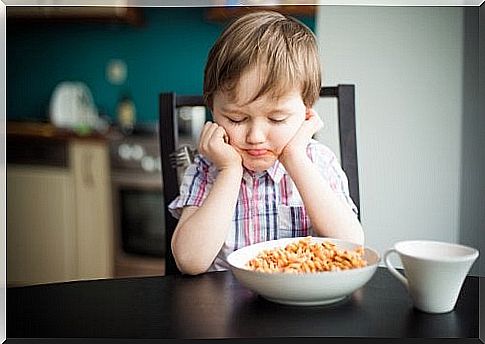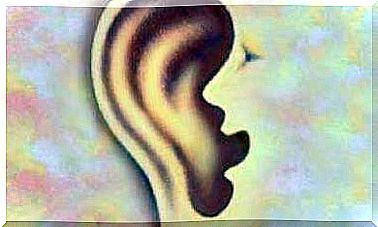My Child Doesn’t Want To Eat: What To Do?
Usually children eat when they are hungry and stop when they are full. However, you should always pay attention to the weight of your little one and a good supply of the most important nutrients. Because in this way you avoid possible health problems.

You have already tried everything, but in the end your only realization is: “My child does not want to eat”. Why is that?
You worry if your offspring might have a problem. Or is it due to certain family eating habits and traditions?
This article provides information on why there are often problems with children and eating.
My child doesn’t want to eat – why?
If your child doesn’t like to eat, you are very likely to be worried. And for good reason, because your little one naturally needs a healthy diet for proper development .
In fact, children who do not eat well are more exposed to the factors that cause certain diseases.
But let it be said: This circumstance occurs frequently with toddlers and preschoolers. The child doesn’t want to eat . Why is that? On the one hand , children demand more independence as they get older. This also applies to the food: you want to do it by yourself. At the same time, there are also changes in appetite.
Fortunately, these problems are quite normal. And they don’t last long. According to information from the Revista de Psicología Clínica con Niños y Adolescentes, 25 out of 100 children have certain nutritional problems in otherwise normal circumstances. So you are not alone with your problem.
Signs and Risk Factors
You have already seen: there are certain phases when children just don’t want to eat. So that’s completely normal. Nonetheless, you still have to make sure that this doesn’t turn into a more serious problem. So here are some signs that are warning signs that something may be wrong with your child’s health:
- Weight loss or light weight
- Irregular growth
- Nutritional deficiency symptoms
- Insufficient psychological development
In short, there are two aspects you should pay particular attention to: the frequency and duration, and the number and extent of these episodes. Because if you notice drastic changes, you should not hesitate to see the pediatrician.
My child doesn’t want to eat – causes

The fact that your child does not want to eat can be due to several factors. According to a study published in Pediatric reports, this includes personality traits and general health. But also the upbringing and the learned nutritional behavior have an influence that should not be underestimated.
It is also important to find out certain things about your parents. Because the eating habits and behaviors of the parents are almost always reflected in those of their children. These can be factors such as:
- Educational competence
- Knowledge of food
- Interpersonal relationships
- Physical and emotional condition
What can you do if your child doesn’t like to eat?
Set specific meal times
Ideally, children should have three main meals and two snacks a day. If you follow the meal times that have been set in a disciplined manner, you can be almost certain that your child will then also have an appetite.
In addition, it is also important to set a certain time limit for the meal. 20 minutes is enough time for a child to eat their meal.
Don’t force your child to eat
Sometimes desperate parents prepare special meals or force the children to eat.
- But in these cases it is better to wait until the next meal. Because then the child will surely be hungry.
- Remember that if you try to force your child to eat there will be negative consequences: this can easily lead to tension in the relationship between you and your offspring.
Try positive reinforcement
The so-called “token system” has proven to be successful. This method mainly uses the principle of positive reinforcement. This can increase your child’s motivation and susceptibility to trying new foods.
- This can also prevent your offspring from eating so slowly. And on top of that, feeds his plate empty. Give it a try!
To eat together
A good part of nutrition education is getting the family to eat together whenever possible. Eating together, without stress or arguments, will make your child enjoy meals.
More tips

A publication in Paediatrics & Child Health introduces further measures that can improve the eating habits of your children:
- Offer your child different foods. You should of course try to introduce the new food and taste experiences to the child only gradually. And you’re going to have to try this about 15 or 20 times before you succeed with it. So you have to bring some patience and perseverance with you.
- Teach your offspring good eating habits. Because through your upbringing in this regard, you can achieve that your child internalizes how they can eat well. And in this way, they will also understand the importance of healthy eating to their health.
- Let your child help out in the kitchen.
- Try to make the food more fun. For example, you can use cookie cutters to cut out fun shapes. Or you can shape the food into faces. There are tons of ideas on how to make food more engaging and new foods more interesting for the little ones.
- Under no circumstances should you give your child food as a reward or withhold food as a punishment.
- While it’s true that the child should be eating what is cooked, try to include at least one food in each meal that your child likes to eat.
- Make sure that your offspring does not satisfy their hunger with milk, juices or sweetened drinks between the set meals.
- You should also make sure that the size of the portions corresponds to the age of your child.
- When shopping, allow your child to choose the healthy foods they like to eat for themselves.
- But most importantly, be a role model for your child. By reaching for healthy and diverse foods yourself, you are most likely to get your offspring to imitate your behavior.
Final remarks
And remember, if your child doesn’t like to eat, don’t rush them. After all, it is usually the case that children just eat when they are hungry and stop when they are full.
On the other hand, one of your main tasks is to provide the little one with a rich selection of healthy foods. So your child can choose and decide how much they want to eat. Or maybe that it doesn’t even want to eat.
We hope these tips will help you improve any eating habits you may have at home!









